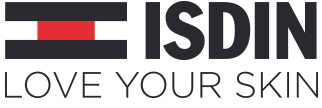

ISDIN

Catalonia, Spain
December 2020
Personal care products
Wholesale/Retail
Argentina,
Belgium,
Brazil,
Chile,
China,
Colombia,
France,
Germany,
Italy,
Mexico,
Peru,
Portugal,
Spain,
United States
ISDIN, a leading international laboratory in photoprotection and dermatology in Spain provides integral and innovative solutions for healing, prevention, and taking care of the skin. Since its foundation 48 years ago, ISDIN has maintained a firm commitment to respond effectively to the needs of the skin, together with dermatologists and pharmacists. The result is a range of products at the forefront of dermatology, with advanced formulas and innovative textures for better compliance with treatments. ISDIN's vocation to be an international benchmark in skincare has led it to be present today in more than 40 markets around the world with a team of more than 1,000 people.
Overall B Impact Score
Governance 18.7
Governance evaluates a company's overall mission, engagement around its social/environmental impact, ethics, and transparency. This section also evaluates the ability of a company to protect their mission and formally consider stakeholders in decision making through their corporate structure (e.g. benefit corporation) or corporate governing documents.
Workers 26.3
Workers evaluates a company’s contributions to its employees’ financial security, health & safety, wellness, career development, and engagement & satisfaction. In addition, this section recognizes business models designed to benefit workers, such as companies that are at least 40% owned by non-executive employees and those that have workforce development programs to support individuals with barriers to employment.
Community 20.2
Community evaluates a company’s engagement with and impact on the communities in which it operates, hires from, and sources from. Topics include diversity, equity & inclusion, economic impact, civic engagement, charitable giving, and supply chain management. In addition, this section recognizes business models that are designed to address specific community-oriented problems, such as poverty alleviation through fair trade sourcing or distribution via microenterprises, producer cooperative models, locally focused economic development, and formal charitable giving commitments.
Environment 15.2
Environment evaluates a company’s overall environmental management practices as well as its impact on the air, climate, water, land, and biodiversity. This includes the direct impact of a company’s operations and, when applicable its supply chain and distribution channels. This section also recognizes companies with environmentally innovative production processes and those that sell products or services that have a positive environmental impact. Some examples might include products and services that create renewable energy, reduce consumption or waste, conserve land or wildlife, provide less toxic alternatives to the market, or educate people about environmental problems.
Customers 13.9
Customers evaluates a company’s stewardship of its customers through the quality of its products and services, ethical marketing, data privacy and security, and feedback channels. In addition, this section recognizes products or services that are designed to address a particular social problem for or through its customers, such as health or educational products, arts & media products, serving underserved customers/clients, and services that improve the social impact of other businesses or organizations.